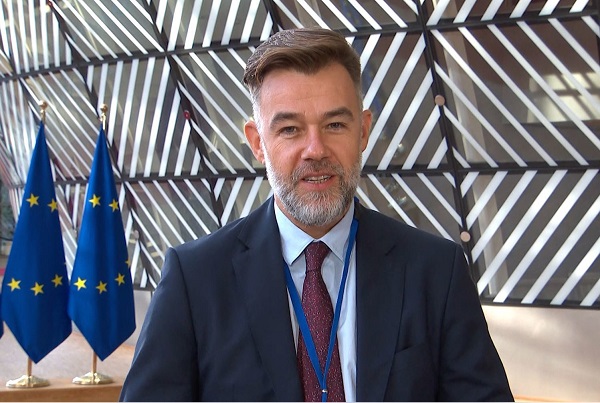 Franz Fayot, Luxembourg's Minister of the Economy;
Credit: European Council (taken from video)
Franz Fayot, Luxembourg's Minister of the Economy;
Credit: European Council (taken from video)
On Thursday 29 September 2022, Luxembourg's Minister of the Economy, Franz Fayot, took part in the meeting of the European Union (EU) Competitiveness Council in Brussels, bringing together EU economy ministers.
The debates focused on the resilience of the fundamental freedoms of the internal market, in particular the free movement of services, goods and people, in times of crisis.
The functioning of the internal market and solidarity between the 27 EU Member States are a precondition for tackling the current energy crisis, according to Luxembourg's Ministry of the Economy, and border closures during the COVID-19 pandemic highlighted the fragility of the internal market.
Referring to the ongoing negotiations on the emergency measures proposed by the European Commission to mitigate high energy prices, Minister Fayot pleaded for a coherent and fair European framework allowing all member countries, whether they are net producers or importers of energy, to benefit from compensation systems. He said: "The principle of solidarity requires finding solutions that benefit all European citizens and businesses while avoiding a fragmentation of the internal market". He warned against any (direct or indirect) legitimisation of barriers introduced in times of crisis: "The internal market must be cared for on a daily basis and that depends on the will of the Member States".
In addition, the ministers had a debate on the "Ecodesign" proposal for a regulation, the aim of which is to encourage the production and facilitate the free circulation of more ecological products in the internal market, in particular by improving access to sustainability information and product circularity. The European Commission has proposed a digital passport which should accompany products placed on the European market.
"Luxembourg is a pioneer in this field thanks to our Product Circularity Data Sheet (PCDS) initiative, which aims to create transparency regarding the components of all products regarding their circular characteristics", explained Minister Fayot, who welcomed the Commission's proposal, which is based on Luxembourg's experience in this area. Luxembourg's Economy Minister called for the rapid adoption of this European passport by all companies in all value chains in order to create added value without delay. He added: "I have always been convinced that it is not enough to replace existing products with more sustainable ones. We must also reduce over-consumption".
The meeting ended with a working lunch during which the ministers took stock of the economic consequences of the war in Ukraine, in particular with regard to the impact on supply chains.








